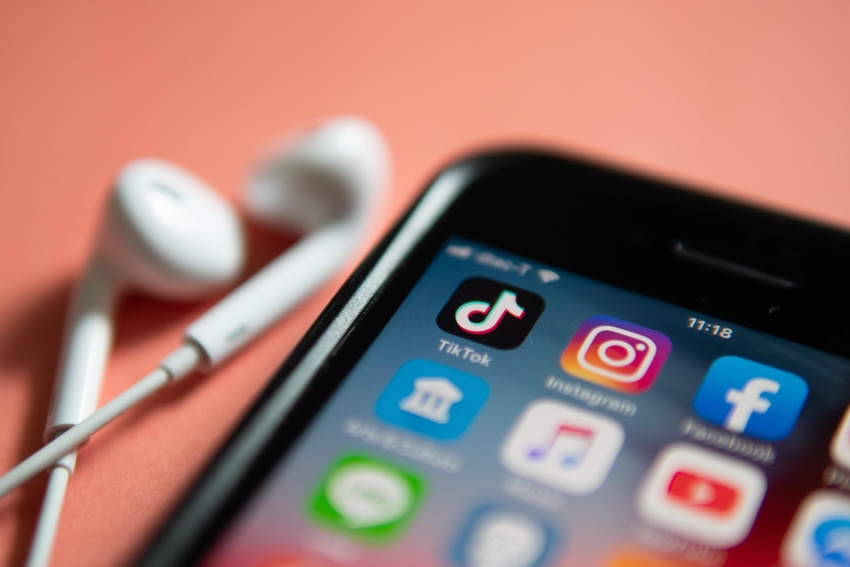The TikTok ban is now literally the dumbest thing ever
Donald Trump, the instigator of the TikTok ban, no longer supports that position. It shows that the debate has nothing to do with logic or reason – it's a purely political issue.

The debate over whether to ban social media site TikTok is impossibly stupid. It's a big waste of time and utterly pointless.
Case in point: the instigator of the ban – former President Donald Trump, who is the presumptive Republican nominee for president – no longer supports a ban. Why? Because it would help... wait for it... Facebook.
Facebook is "a true Enemy of the People!" Trump posted on social media.
So, does that mean we should ban Facebook?
The debate about whether to allow TikTok, which is owned by Chinese Internet company ByteDance, to continue operating in the US has nothing to do with logic or reason – it's a purely political issue. Any argument for or against a TikTok ban is rooted squarely in our polarized American political system. If anyone was actually interested in protecting Americans' personal data – ostensibly the reason for a TikTok ban – they would do so at an industry or technology level rather than on an app-by-app basis.
Dumb and dumber
A TikTok ban would impact Internet service providers if they were forced to block the site, so it's something that the industry should at least know about. Here's some background.
TikTok first arrived in the US in 2017. By 2020 it counted around 80 million users and was already driving substantial amounts of traffic across US wireless networks.
But then, in the summer of 2020, President Trump issued an order requiring ByteDance to sell its US operations to an American buyer or close them. The reason given was that because the app collects Americans' data, the Chinese could use it to "track the location of Federal employees and contractors, build dossiers of personal information for blackmail, and conduct corporate espionage."
After Trump left office, some people continued the campaign against TikTok, including FCC Commissioner Brendan Carr, a Trump appointee.
The state of Montana even voted to enact a ban of TikTok, primarily by requiring app stores to remove the app. But a US District judge said the state's law "violates the Constitution in more ways than one" and "oversteps state power." (It's also completely moronic.) Montana is now appealing the ruling.
'A material risk'
Now, the TikTok ban appears to be gathering steam at a federal level. A House committee last week voted unanimously to require ByteDance to divest its ownership of TikTok. President Joe Biden has said he will sign such legislation.
"For the first time there is a material risk to TikTok that the federal government will force a divestiture or a shut down," wrote Blair Levin, a policy adviser to New Street Research and a former high-level FCC official, in a note to investors Monday.
But wait! After the House committee passed the "Protecting Americans from Foreign Adversary Controlled Applications Act," Trump came out against it. Why? As noted by Axios, it's pretty simple: Voters use TikTok, and Trump wants more votes. Also, a Trump backer, billionaire Jeff Yass, has a huge financial stake in ByteDance.
The US government has provided no firm evidence that the Chinese government has been harvesting TikTok data. Similarly, it has provided no formal, definitive evidence against China's Huawei.
Nevertheless, taxpayers are spending almost $2 billion to remove Huawei equipment from US networks. And US diplomats are trying to get other countries to block the purchase of Huawei equipment.
Does that mean that Huawei and TikTok are totally safe? I have no idea! There's no evidence one way or the other.
As a result, we're left with deft and nuanced arguments like this: "There's a lot of good and there's a lot of bad with TikTok. But the thing I don't like is that without TikTok, you can make Facebook bigger and I consider Facebook to be an enemy of the people along with a lot of the media," Trump told CNBC.
The telecom angle
If anyone were to inject reason into this debate, they might talk about using telecom networks to prevent Chinese incursions. In fact, that's exactly how AT&T is selling its new Dynamic Defense network-based security service. Users can select the individual countries they want to block from their operations.
Alas, we're not there yet. Instead, we'll just have to wait and see how Trump's new position on TikTok will affect the wider GOP.
Meanwhile, Amazon, Sears and other retailers continue to sell video doorbells from Chinese manufacturers with serious security flaws, as noted by Consumer Reports.
Maybe we should ban doorbells. Or maybe doors.
About the Author(s)
You May Also Like




_International_Software_Products.jpeg?width=300&auto=webp&quality=80&disable=upscale)







